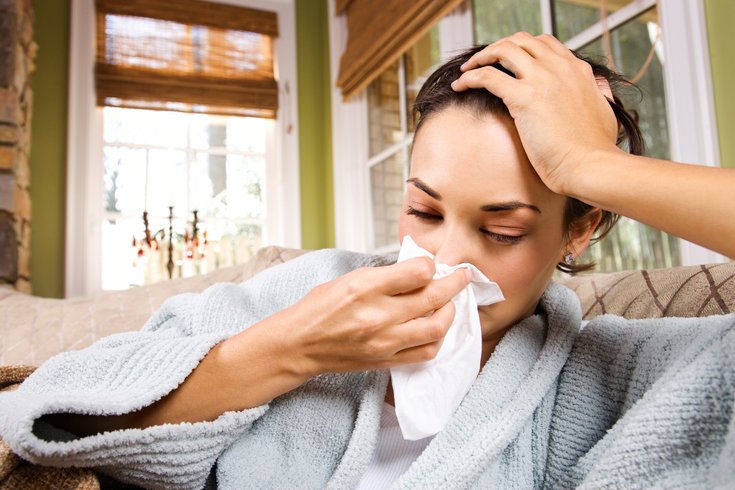
December 07, 2023
 Source/Image licensed from Ingram Image
Source/Image licensed from Ingram Image
RSV cases continue to rise rapidly in Pennsylvania and New Jersey, with influenza and COVID-19 also ticking upward, data show.
Respiratory illnesses like influenza and COVID-19 often begin spreading more rapidly during the holiday season, and this year appears to be no exception.
Cases of respiratory syncytial virus – better known as RSV – continue to shoot upward in Pennsylvania and New Jersey, with the flu and COVID-19 also gaining traction, according to the latest data from the states' health departments. RSV cases have not surged to the levels seen last fall, but they are higher than they have been in most recent years.
Nearly 4,200 new RSV cases were reported in Pennsylvania during the week ending Saturday – a 21.8% increase from the previous week. In New Jersey, the percentage of positive RSV cases has been rising since mid-October, eclipsing 14% in the week ending Nov. 25, the latest data available.
For most adults, the illness plays out like a cold, but it can be serious for infants and seniors. Pennsylvania health officials say the number of emergency department visits for RSV has particularly jumped among children under 5.
RSV vaccines are available for seniors for the first time this fall, but only 14.8% of adults 60 and over have received them, according to the U.S. Centers of Disease Control and Prevention. There also are new preventative measures to protect infants and toddlers.
Seasonal flu shots and updated COVID-19 vaccines are available too – and health officials have stressed that it's not too late to get them.
"It takes up to two weeks to reach full immunity after receiving your vaccines, so I encourage you to get them now, before you get together with loved ones for holiday gatherings," acting Pennsylvania health secretary Dr. Debra Bogen said during a press event in Altoona on Wednesday.
Influenza cases in Pennsylvania have been increasing since mid-November, following a trajectory similar to two years ago, when cases peaked in January and resurged in the spring. There were 2,866 new influenza cases in Pennsylvania in the week ending Saturday, a 28% increase from the previous week.
Still, the Philadelphia Department of Public health reports low flu activity in the city. New Jersey also reports low activity statewide.
COVID-19 hospitalizations – now the primary way health officials track the spread of the coronavirus – also remain low in Pennsylvania and New Jersey, according to the CDC. But they have risen in recent weeks, too. Hospitalizations were up by 13.4% in Pennsylvania and 12.8% in New Jersey during the week ending Nov. 25, the most recent data available.
With holiday gatherings on the horizon, the CDC advises people to get vaccinated and take the following steps to prevent the spread of respiratory illnesses:
• Stay home if you are sick; diagnostic exams, including free, at-home COVID-tests, can determine the cause of illness
• Cover coughs and sneezes
• Wear a mask when traveling to protect yourself and prevent the spread of respiratory viruses.
• Avoid touching your eyes, nose and mouth
• Washing your hands with soap or using hand sanitizer with at least 60% alcohol content